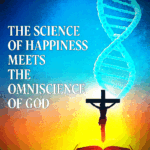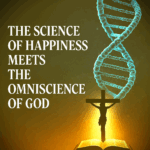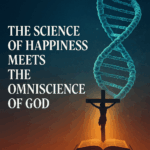“Above All Else : The Bible” – 2 Timothy 3:14-17
Introduction – sermon series
We’re kind of nicely in the middle of a series of sermons on the essentials of our Christian faith and how we live it out – the things that are important “above all else.” We have talked about the Triune God – Father, Son and Holy Spirit. We have considered our own sinful humanity and what God has done to remedy our sin-sickness. In the last two Sundays, we have looked at the Sacraments of Holy Baptism (cleansing, new spiritual birth) and Holy Communion (the spiritual food to sustain us in our walk with Jesus). Today, we turn our attention to the source of the story of God and people – the Bible.
1. The Bible… trivia and numbers
I want to start with just some rapid-fire trivia and numbers.
Among the best selling books of all time, you will find books by J. K. Rowling, J. R. R. Tolkien, C.S. Lewis, and Charles Dickens, with more than 100 million copies of each sold. Outweighing them all is the Bible, with between 5 and 7 billion copies – that’s 5 times as many as the top 10 selling books of all time combined!!
Within the Bible there are 66 books – 39 from the Old Testament times before Jesus, and 27 from the New Testament times shortly after Jesus.
It was written over the course of about 1600 years (from 1500 B.C. to 100 A.D.), in three languages (Hebrew, Aramaic and Greek), by about 40 different authors. In the 1200’s the books were divided into chapters (1189 of them), and then a couple of hundred years later into verses (just over 31,000).
The middle verses of the Old and New Testaments and of the entire Bible are significant ones, but if you want to find that out… well, that’s your homework! I could tell you Bible stories about the man who lived to be 969, or the donkey that spoke to a man, or the day the sun stood still, or the man with twelve fingers and twelve toes, or the axe head that floated in water, but that’s enough about trivial stuff… time to get to something more meaty.
2. How the Bible came to us
Buried in all that trivia was the little detail of 40 different human authors. More important than that is the fact that the Bible was inspired by God. Those 40 or more men wrote down the words and stories, but God is the true author. Paul wrote to Timothy that “All Scripture is God-breathed (inspired).” That’s why we call it the Word of God. That’s why we can trust it as being reliable and true and powerful.
But how did those 66 books come to be? Well, it may surprise you that God didn’t just plop the entire book on someone’s front step one day. Old Testament stories were passed on by word of mouth – like the Passover story I talked about last Sunday. But eventually, whether it was one author like Moses, or a group of authors like for the book of Judges, the stories were written down as the authors were “carried along by the Holy Spirit,” and then those stories were compiled into a collection that was passed along through the generations. The first five books of Moses came to be known as the Torah, the Law. But there were other styles of literature in the Bible: history, biography, poetry, prophecy, wisdom literature, and in the New Testament… sermons, Gospels, letters, and apocalyptic. Those other Old Testament writings – whether historical in nature, or prophetic or poetic – were added to Moses’ books so that, by the time of Jesus, the entire compilation was known as the Law of Moses, the Prophets, and the Psalms (or the Writings). The authority of those Scriptures was based on the credibility of the authors as faithful prophets of God. The New Testament books were written one at a time, again accepted as authored by God based on the human author’s connection to Jesus. There are other Biblical-era books that spoke about God and/or Jesus, but because they did not carry the authority of a prophet, evangelist, or apostle, or because their overall message was not consistent with the other writings, those books were not included in what we know as the Bible today. So, one of the criteria for a writing to “make it” into the Bible was that its message must be consistent and cohesive with all the other Bible writings. There was no room for contrasting pictures of God, His character, or His actions on behalf of His people.
The list of the Bible’s books was generally accepted in the second century A.D. By that time, the entire Bible – Old Testament and New Testament – was available in the Greek language. It was in the late 4th century that St. Jerome, in his little “office” in Bethlehem, translated the entire Bible into Latin, the new world-wide language. That Latin Vulgate dominated the Christian scene until John Wycliffe translated the Bible into English in the late 1300’s, and then Luther into German in the early 1500’s. From that time on, people could begin to read the Bible in their own common language. Even this discussion of how the Bible came to be and how it came to us is rather shallow compared to the vital stuff. Let’s get to it…
3. The Bible… the vital stuff
a. How do we know the bible is true?
So, the first question we need to ask is… How do we know the Bible is true? If the Bible isn’t true or isn’t trustworthy or isn’t of divine origin, then we can logically place it on par with other human-authored novels, or let it gather dust on the bookshelf, or not even bother to buy one or crack it open. But if it is God’s book for us, and if it’s reliable and true and trustworthy, then we ignore it at our own spiritual and eternal peril.
There are both internal and external “proofs” of the Bible’s truth. I have already mentioned the “internal proof” of the consistency and cohesiveness and harmony of all its parts. The whole thing hangs together. Then there are the prophecies about a Saviour made in the Old Testament times that were all fulfilled in and by Jesus in the New Testament times. St. Paul wrote that “No matter how many promises God has made, they are ‘Yes’ in Christ,” fulfilled in Christ. Someone has calculated the probability of one man fulfilling all those promises, and it is truly astronomical. The message, the teaching of the Bible is also so magnificent and grand and lofty that no human being could have conceived of it and have written the story. This is one of the reasons that I stake my life on the message of the Bible… because I can’t believe that some rag-tag bunch of people 2,000 years ago could have written a hoax of a story like this that has deceived the human race for all this time, especially the sophisticated and scientific people of our time. The message, the story, had to come from God!
The external proofs include the testimony of nature, how the Bible explains the way things are in our world. There are the archaeological discoveries that have supported the people, the places, and the events spoken of in the Bible. There is the power of the Bible to survive when culture after culture, empire after empire has tried to destroy it. More personally, there is the power of the Bible’s message to transform people and communities, and the heroic faith of those who have died for what they believe about Jesus. Why would all of Jesus’ disciples except one have died in testimony of Jesus’ resurrection if it was all a lie, a hoax? These external proofs give credence to the reliability of God and of His Word.
b. Law and Gospel
We also understand that there are two great doctrines, or themes in the Bible – Law and Gospel. They are separate from each other, but also complementary… in the sense that we need to read the Bible with both in mind in order to fully comprehend the entire message. Three weeks ago, as we considered the topic of humanity, we heard that there are three uses of the Law – as a curb, as a mirror and as a guide. Today, as we consider the Law from the perspective of one of those doctrines in God’s Word, we recognize that the Law tells us what God expects of us, what He expects us to do. It also points to God’s wrath over our sin as it warns and even condemns us. The Law, then, focuses on our doing, and when we hear it, when we read it, it sounds like bad news. Here are some examples of Law verses from the Bible: “Be perfect as your heavenly Father is perfect.” “All have sinned and fall short of the glory of God.” “The wages of sin is death.” We don’t like to hear those kinds of commands, truths and warnings. They are indeed bad news.
The Gospel, on the other hand, quite literally means and is good news. It focuses on the action, doing and speaking of God, telling us what God has done for our good, for our blessing, for our salvation. In the Gospel, God reveals His love and compassion, the saving truth that Christ has redeemed us with His blood and has brought us forgiveness, life and salvation. We rejoice to hear Gospel passages like these: “There is no condemnation for those who are in Christ Jesus.” “God loved us and sent His Son as an atoning sacrifice for our sin.” “The gift of God is eternal life in Christ Jesus our Lord.” “While we were still sinners Christ died for us.”
The Word of the Law serves the purpose of getting our hearts ready for the Word of the Gospel. Without the Law, the Gospel would not make sense – who needs forgiveness if you do not know that you have sinned! And without the Gospel, the Law is mere cruelty, for what good is it to find out that you are a sinner if there is no forgiveness offered and given! So, throughout Scripture, these two themes run together to make sure that we actually do hear the main message of God’s Word.
c. The Central Message
And what is that main message? You know, often in my 38 years of being a pastor I have asked people that question. Whether it’s a couple wanting to get married or have their baby baptized, or a group or an individual exploring the Christian faith for the first time, I will ask people – in 25 words or less – to summarize what they think God is trying to tell us in the Bible. What’s His main message, what is He trying to get across to us? Some, because of their unfamiliarity with the Bible, will draw a complete blank. Others will grasp onto some well-known saying like “Do unto others as you would have them do to you,” or “Love your neighbor as yourself,” as we heard in the Gospel reading today. Those are fine, but they focus on what we are to do… and that’s the Law. Remember the Law’s purpose from the Bible is to point us to the Gospel, so the main message of the Bible can’t be Law, and must be Gospel.
If we think about it from the point of view of Old Testament and New Testament, we realize that the Old Testament points forward in time to the coming of a Saviour. That might be words that speak of the future work of the Saviour – like “the punishment that brought us peace was upon Him, and by His wounds we are healed” – or it might be events that foreshadow some aspect of the Saviour’s ministry toward humanity – like the Passover Lamb that was sacrificed in ancient Egypt to spare Israelite families and to lead them out to the promised land. That pointed ahead to the very role of Jesus as our Passover Lamb, sacrificed on the cross for you, risen from the dead to lead you to the promised land of heaven. The New Testament writings point back in time to the person and work of Jesus. That leaves only the books of Matthew, Mark, Luke and John which tell the story of Jesus’ ministry, suffering, death and resurrection – which is the essence of the Bible’s entire message for you. So, when I state my 25 words or less summary of what God is trying to tell us in His inspired book, I usually say something like this… and I make it personal: “Despite the fact that I’m a sinner, Christ Jesus died to forgive me of my sins, and He rose to open heaven’s doors for me.” That is to say that the Bible’s message is not about what I am supposed to do, but about what God has already done for me, and that’s the Gospel good news.
Let me state it personally for you: “You are a sinner! But God loves You so much that even before you were born, God created and carried out a plan to deal with your sin. He sent His Son to this earth to live, suffer and die for you on the cross. He took your sin on Himself, and gave you His very own righteousness. That means you are forgiven all your sin. You are a precious child of God. Jesus rose from the dead to declare that, by your faith in Him, you, too, will rise from the dead one day to spend an eternity of days in His glorious presence!” That’s what the Bible is all about!!
d. The Use of God’s Word
One more short thing… what do we do with God’s Word? How do we treat it? I remember an issue that we discussed when I was in youth group… last year… or maybe the year before. It was something like: “If your house caught on fire, what would you take out with you?” I think the intended answer was your Bible, because we want to treat it with respect and sacredness. That might be a good answer, but it really is just paper and ink. I have worn out several Bibles over the years, and either given them away or recycled the book. Is that sacrilegious? I don’t think so. For the most part it is easily replaceable at any bookstore or online, unless your Bible had your personal notes and learnings written inside. More important than the book itself is the message in it from God for you, but we can know that without having the paper and ink. You can listen to it or simply remember it.
But how do we use that Word of God?
Two quick answers, and the first one comes in two corresponding ways. In the Constitution of our Church Body and of our Congregation, we acknowledge that we use the Word of God as the only rule and norm of faith and practice. That means it guides and shapes what we believe and how we live as a group of Christians. Second, when we receive new Members into discipleship of Jesus, we ask them personally to confess both the Old Testament and the New Testament as the inspired Word of God, and to declare their intent to live according to it. So, again… faith and practice.
The second answer about how we use the Word of God will come from our Epistle reading from 2 Timothy 3:16-17. There we read that “All Scripture is… useful for teaching, rebuking, correcting and training in righteousness so that the man [and woman] of God may be thoroughly equipped for every good work.” When you read or hear God’s Word being read, pay attention to which one of those four uses God might have in mind for you at that point – teaching, rebuking, correcting or training in righteousness. Listen, learn, be ready to be shaped and molded to be God’s person.
But know, and don’t forget – especially if your house is on fire – that the true purpose of God’s Word is found in the previous verse… that “Holy Scriptures make you wise for salvation through faith in Christ Jesus.” That is the true power and the true blessing of this “Holy Spirit – inspired” book.
Let me close with a beautiful quote from Martin Luther: “Whoever believes and holds to Christ’s Word, heaven stands open to him, hell is shut, the devil is imprisoned, sins are forgiven, and he is a child of eternal life. That is what this book teaches you – the Holy Scripture – and no other book on earth.” Thanks be to God! Amen.








